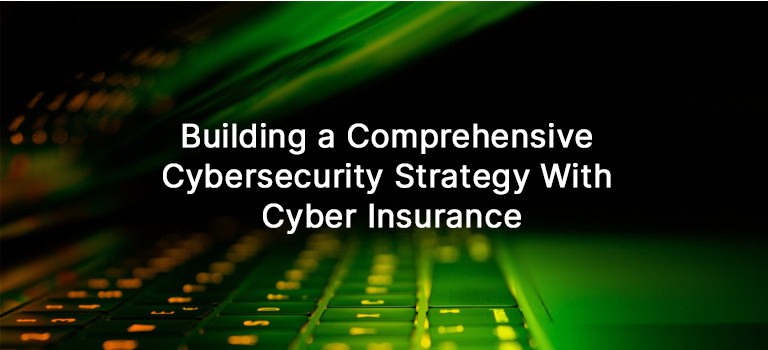Cyber insurance is an absolute must-have for any business that stores important data online, has a large customer base or deals with valuable digital assets. Cyber professionals check all three of those boxes.
This guide demonstrates how cyber insurance plays a key role in building a comprehensive, bulletproof cybersecurity strategy.
Types of Cyber Insurance Coverage
Cyber insurance’s main purpose is to reimburse companies for their data recovery expenses after a cyber-attack. These expenses include security updates, identity theft protection and compensating for lost income that usually comes with cyber-attacks. Some policies also cover physical forms of damage such as destruction of electronics.
Cyber insurance seems straightforward enough based on this description, but it can make a much greater impact beyond providing financial assistance after a cyber-attack. The greatest strength of cyber insurance is its policy variety. There are four main types of cyber insurance coverage, and each one plays a critical role:
- First-party insurance: This covers all of the costs of a data breach recovery, including the investigation of the breach, ransomware payments and a risk assessment of the organization’s current cybersecurity policies.
- Third-party liability insurance: This covers legal fees, settlements, and regulatory fines if a third-party sues a business for damages as a result of a cyber-attack.
- Cyber extortion insurance: This covers the payments that cybercriminals demand when they gain access to sensitive data within the organization, also known as “data kidnapping”.
- Software liability insurance: This covers legal fees for software developers in the event that a defect in their software leads to financial losses or other damages. This policy is also known as technology Errors & Omissions (E&O) insurance, and is especially important for cybersecurity software developers.
There are also unique coverage options within each policy. For example, first-party insurance can cover specific types of cyber-attacks based on the business’s request, such as malware, phishing or social engineering attempts. Cybersecurity professionals can craft an insurance plan that fits perfectly with their existing security strategies.
Although the number of options is great for small businesses, variety can be a double-edged sword, because sometimes a policy will fail to cover a specific attack. According to a 2020 study of 5,000 IT companies, 20% of IT professionals have cyber insurance that doesn’t cover ransomware costs.
Advantages of Cyber Insurance
Aside from its great versatility, cyber insurance has many other advantages. For starters, it helps businesses account for the rising costs of cyber-attacks. According to IBM, the average data breach cost $4.24 million in 2022, and that includes small businesses or individual victims. Financial recovery from a data breach is impossible for most people without cyber insurance.
The frequency of cyber-attacks is also on the rise due to factors such as the rise of remote work and the increasing use of interconnected devices. In fact, a study from the University of Maryland showed that hackers attack every 39 seconds, which comes to an average of 2,244 times daily. That data was released before the pandemic, and things have only gotten worse.
With that in mind, here are some other big ways cyber insurance can help businesses improve their cybersecurity strategies and prevent future attacks.
1. Helps With Risk Identification
Although cyber insurance can’t make direct improvements to a business’s risk assessment procedures, it can help people conduct cyber risk assessments and provide lots of helpful analysis. Once the dust settles after an attack, the insurance agency identifies where the business fell short and what strategies need to change.
Providers can break down their analysis into digestible metrics, allowing people who know nothing about cybersecurity to address their weak points. Simplification is crucial for success because 27% of small and medium-sized businesses lack the expertise to make accurate cybersecurity updates.
3. Sets High Standards
A well-trained workforce is the foundation of any organization’s cybersecurity efforts. That’s why cyber insurance providers set high standards for their clients and take steps to educate them about responsible online behavior and cybersecurity policies. They often provide training programs, reading materials or seminars to lay the foundation for strong cybersecurity.
These educational materials are most helpful for small businesses. According to a 2020 study, 50% of small business owners said that their employees get no formal in-house training for cybersecurity. Cyber insurance helps the owners address that problem.
2. Repairs or Updates Affected Devices
The financial assistance that people receive from a cyber insurance claim can also go towards expensive repairs or updates for devices affected by an attack. These improvements allow organizations to strengthen connections between devices and thereby lower the risk of a future data breach.
The only time insurance can directly pay for repairs is when cybercriminals do physical damage to devices, such as destroying computers or hard drives. Although these situations are much less common than online data breaches, cyber insurance providers must prepare for every possible scenario.
4. Minimizes Lost Productivity
Lost productivity is one of the biggest reasons why cyber-attacks are so expensive. Data breaches lead to costly downtime that loses everyone money, all the way down to entry-level positions. Cyber insurance helps businesses minimize lost productivity in the wake of an attack and get their operations back on track.
5. Provides Peace of Mind
Aside from their tangible benefits, cyber insurance policies also provide peace of mind. The stress of dealing with cybercriminals or legal troubles related to cybersecurity is a lot to handle. Business leaders can sleep easier at night knowing that they have an experienced and trustworthy ally on their side.
Improve Your Cybersecurity Effectiveness
Cyber insurance can’t directly ward off cybercriminals. That responsibility still falls on the shoulders of business leaders, cybersecurity professionals and the rest of the workforce.
However, a cyber insurance policy can still provide financial assistance, valuable insights, and peace of mind to help people improve their cybersecurity effectiveness and prevent future attacks.
Oscar Collins
Tags: Cyber Insurance


